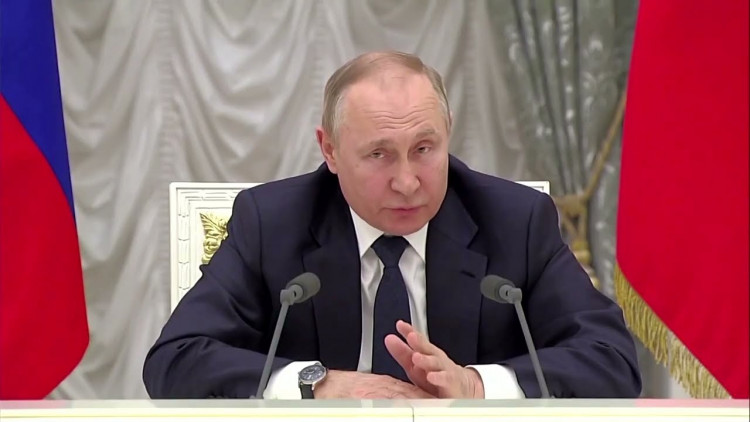Russian President Vladimir Putin issued a stark warning during a press conference in Astana, Kazakhstan, stating that Russia would use "all means of destruction" if Ukraine were to acquire nuclear weapons. The remarks, delivered amid escalating tensions between the two nations, underscored the Kremlin's growing unease over Western support for Kyiv and fears of nuclear proliferation in the region.
"If the country which we are essentially at war with now becomes a nuclear power, what do we do?" Putin asked. "In this case, we will use all, I want to emphasize this, precisely all means of destruction available to Russia."
The Russian president pointed to longstanding non-proliferation commitments, arguing that any transfer of nuclear weapons to Ukraine would violate international agreements. Putin added that while it would be "practically impossible" for Ukraine to develop a nuclear weapon independently, the possibility of a "dirty bomb" - a conventional explosive laced with radioactive materials - could not be ruled out.
Russia has previously accused Ukraine of planning to use such devices, though it has not provided evidence to support the claims. Putin stated that if Ukraine were to resort to deploying a dirty bomb, Russia would respond "appropriately," emphasizing his country's readiness to counter perceived threats.
The discussion about nuclear arms has resurfaced amid reports suggesting Western officials have debated the possibility of providing Ukraine with advanced weapons systems. The New York Times recently reported that some unnamed officials floated the idea of nuclear transfers before U.S. President Joe Biden leaves office. However, no formal plans have been announced, and the Biden administration has emphasized its commitment to preventing nuclear proliferation.
Ukraine relinquished its nuclear arsenal in 1994 under the Budapest Memorandum, which provided security assurances from Russia, the U.S., and the U.K. Ukrainian President Volodymyr Zelenskyy has criticized the agreement, arguing that it left Ukraine vulnerable to Russian aggression, including the annexation of Crimea in 2014 and the ongoing invasion.
Zelenskyy has also renewed calls for NATO membership, a move Moscow strongly opposes. Russia views Ukraine's potential inclusion in the alliance as a direct threat to its security, further intensifying the conflict.
Western officials have downplayed the likelihood of Ukraine obtaining nuclear weapons, but Putin's rhetoric highlights Moscow's heightened sensitivity to the issue. Analysts have noted that the Russian president's statements may be aimed at deterring further Western military support for Ukraine, particularly advanced weaponry that could shift the balance of power on the battlefield.
The backdrop to Putin's remarks is a war that has dragged on for nearly two years, with significant casualties on both sides and no clear resolution in sight. Russia has recently escalated its missile campaigns, including the deployment of the Oreshnik intermediate-range ballistic missile, which Putin claims has capabilities comparable to a nuclear weapon.
Amid these developments, U.S. intelligence assessments suggest that the risk of a nuclear escalation remains low despite Russia's threats. However, Putin's comments reflect a growing willingness to raise the stakes as Ukraine continues to receive Western military aid.




